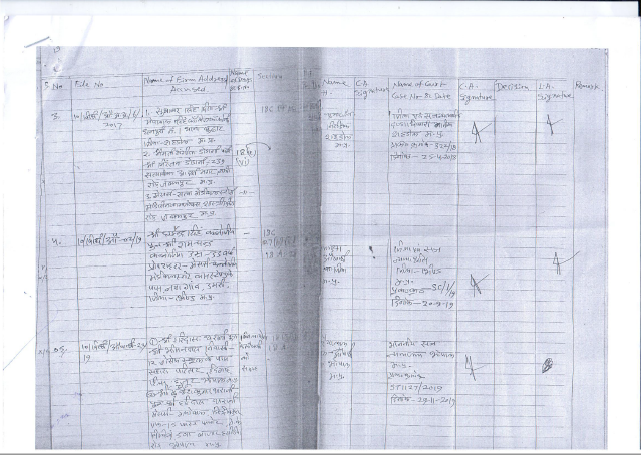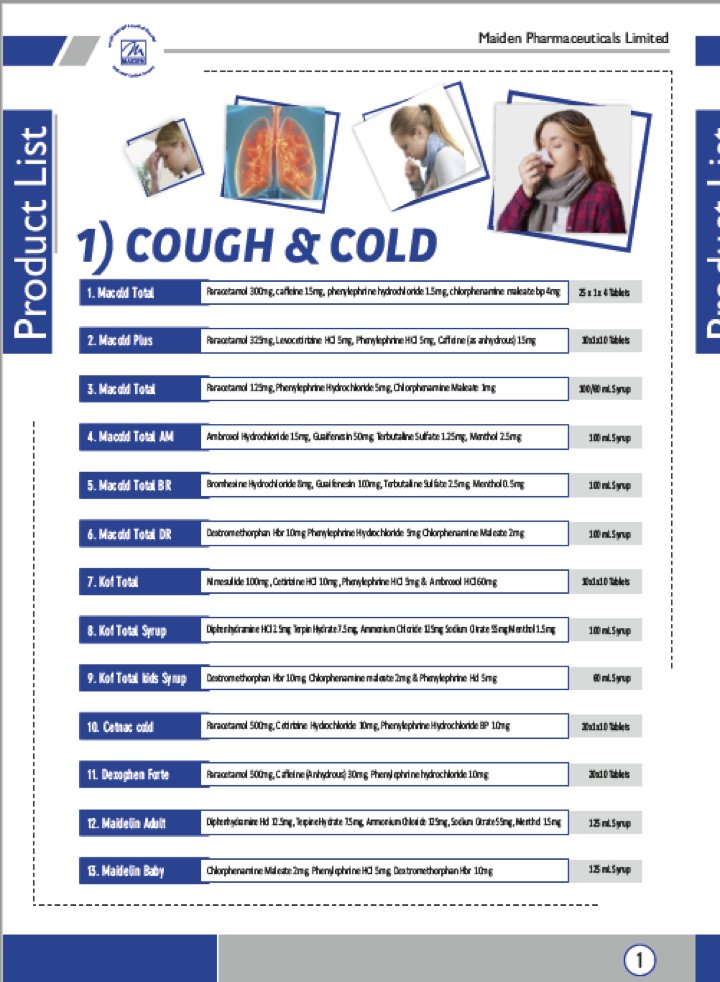
Longish Thread 👇
Recently, the Uttarakhand State Government issued a ban and subsequently revoked its order prohibiting Patanjali Ayurved from manufacturing five products to treat blood pressure, diabeties, glaucoma and other diseases.
hindustantimes.com/india-news/utt…
1/n
Recently, the Uttarakhand State Government issued a ban and subsequently revoked its order prohibiting Patanjali Ayurved from manufacturing five products to treat blood pressure, diabeties, glaucoma and other diseases.
hindustantimes.com/india-news/utt…
1/n
2/n
This punitive action was the result of a complaint filed by @drbabukv alleging violations of the Drugs and Magic Remedies Act by Patanjali Ayurved.
telegraphindia.com/india/uttarakh…
Is this the first time Patanjali has been held responsible for misleading consumers?
This punitive action was the result of a complaint filed by @drbabukv alleging violations of the Drugs and Magic Remedies Act by Patanjali Ayurved.
telegraphindia.com/india/uttarakh…
Is this the first time Patanjali has been held responsible for misleading consumers?
3/n
Does ‘Coronil’ ring a bell?
Does ‘Coronil’ ring a bell?
4/n
Attempts to establish the credibility of traditional medicine, esp., Ayurveda, dates back to the time prior to India’s independence. Any attempt to question the safety of these Ayurvedic cures is painted as questioning the glory of India’s ancient civilization.
Attempts to establish the credibility of traditional medicine, esp., Ayurveda, dates back to the time prior to India’s independence. Any attempt to question the safety of these Ayurvedic cures is painted as questioning the glory of India’s ancient civilization.
5/n
See how glib talking “experts” try to use the tools of evidence based medicine to build credibility of these concoctions:
See how glib talking “experts” try to use the tools of evidence based medicine to build credibility of these concoctions:
6/n
Here is good piece by a public health physician @GorwayGlobal explaining the much touted clinical study conducted by Patanjali: newslaundry.com/2021/02/22/pat…
Here is good piece by a public health physician @GorwayGlobal explaining the much touted clinical study conducted by Patanjali: newslaundry.com/2021/02/22/pat…
7/n
While some of this faith is tied to the framing of Ayurveda as an example of India’s allegedly glorious Hindu past, there are several who believe in the supposedly herbal and “chemical free” properties of Ayurvedic concoctions.
While some of this faith is tied to the framing of Ayurveda as an example of India’s allegedly glorious Hindu past, there are several who believe in the supposedly herbal and “chemical free” properties of Ayurvedic concoctions.
8/n
Changing this perception in a country where “scientific temper” is fast disappearing is not easy.
Any reform will require a political class with the courage of conviction to follow the science on Ayurveda & Unani to its logical conclusion.
Changing this perception in a country where “scientific temper” is fast disappearing is not easy.
Any reform will require a political class with the courage of conviction to follow the science on Ayurveda & Unani to its logical conclusion.
9/n
Seems unlikely to happen any time soon. Why did the Govt of India lend credibility to these unscientific claims?
science.thewire.in/health/harsh-v…
Seems unlikely to happen any time soon. Why did the Govt of India lend credibility to these unscientific claims?
science.thewire.in/health/harsh-v…
10/n
As of now, the only viable regulatory option to tackle the Ayurvedic and Unani industry is to simply prohibit the entire industry from making any kind of therapeutic claims. This appears to be the easiest and most politically feasible regulatory model to implement today.
As of now, the only viable regulatory option to tackle the Ayurvedic and Unani industry is to simply prohibit the entire industry from making any kind of therapeutic claims. This appears to be the easiest and most politically feasible regulatory model to implement today.
11/n
To that extent, the Ministry of Ayush has taken the right steps in notifying Rule 170, although there is room to sharpen the law on the point. This would in effect reduce Ayurvedic and Unani products to the status of food or supplements.
casemindia.org/wp-content/upl…
To that extent, the Ministry of Ayush has taken the right steps in notifying Rule 170, although there is room to sharpen the law on the point. This would in effect reduce Ayurvedic and Unani products to the status of food or supplements.
casemindia.org/wp-content/upl…
12/n
In the long term however, if there is an Ayurvedic product that demonstrates the potential to “cure” or “treat” a disease or ailment, it should go through the same regulatory pathway as any other “new drug” i.e., a rigorous three-phased double-blinded RCT
In the long term however, if there is an Ayurvedic product that demonstrates the potential to “cure” or “treat” a disease or ailment, it should go through the same regulatory pathway as any other “new drug” i.e., a rigorous three-phased double-blinded RCT
13/n
to establish its safety and efficacy.
@Preddy85 and I discuss further on the losing battle to regulate Traditional Indian Medicine in our book, ‘The Truth Pill: The Myth of Drug Regulation in India.’
Watch for an upcoming Twitter Spaces conversation on this topic.
to establish its safety and efficacy.
@Preddy85 and I discuss further on the losing battle to regulate Traditional Indian Medicine in our book, ‘The Truth Pill: The Myth of Drug Regulation in India.’
Watch for an upcoming Twitter Spaces conversation on this topic.
14/n
Order your copy now, to read more:
amazon.in/TRUTH-PILL-Myt…
#truthpill #drugregulation #pharmaindustry #publichealth #patanjali #ayurveda #coronil
Order your copy now, to read more:
amazon.in/TRUTH-PILL-Myt…
#truthpill #drugregulation #pharmaindustry #publichealth #patanjali #ayurveda #coronil
• • •
Missing some Tweet in this thread? You can try to
force a refresh















